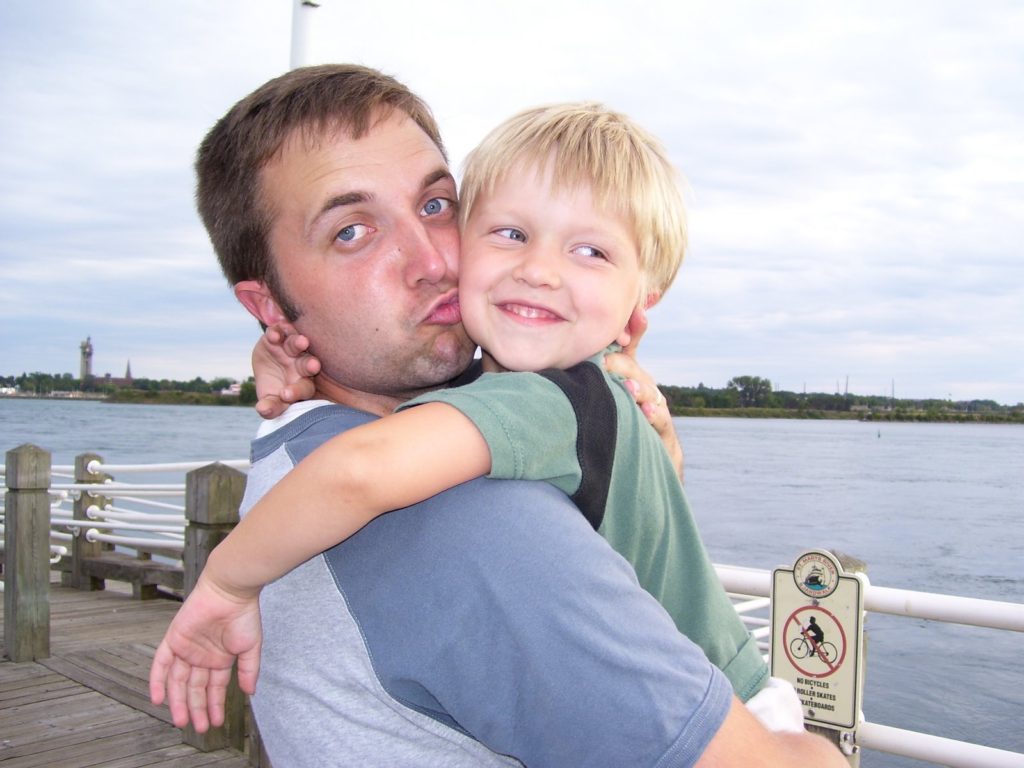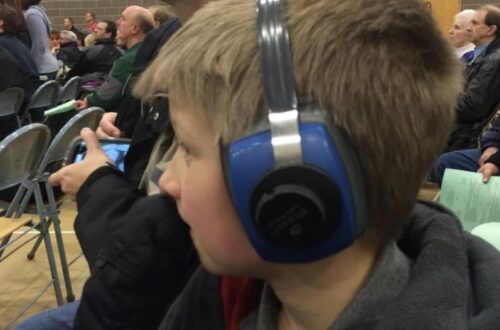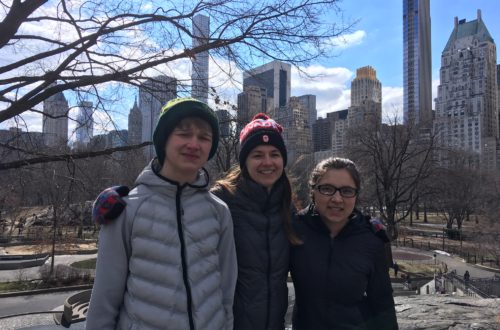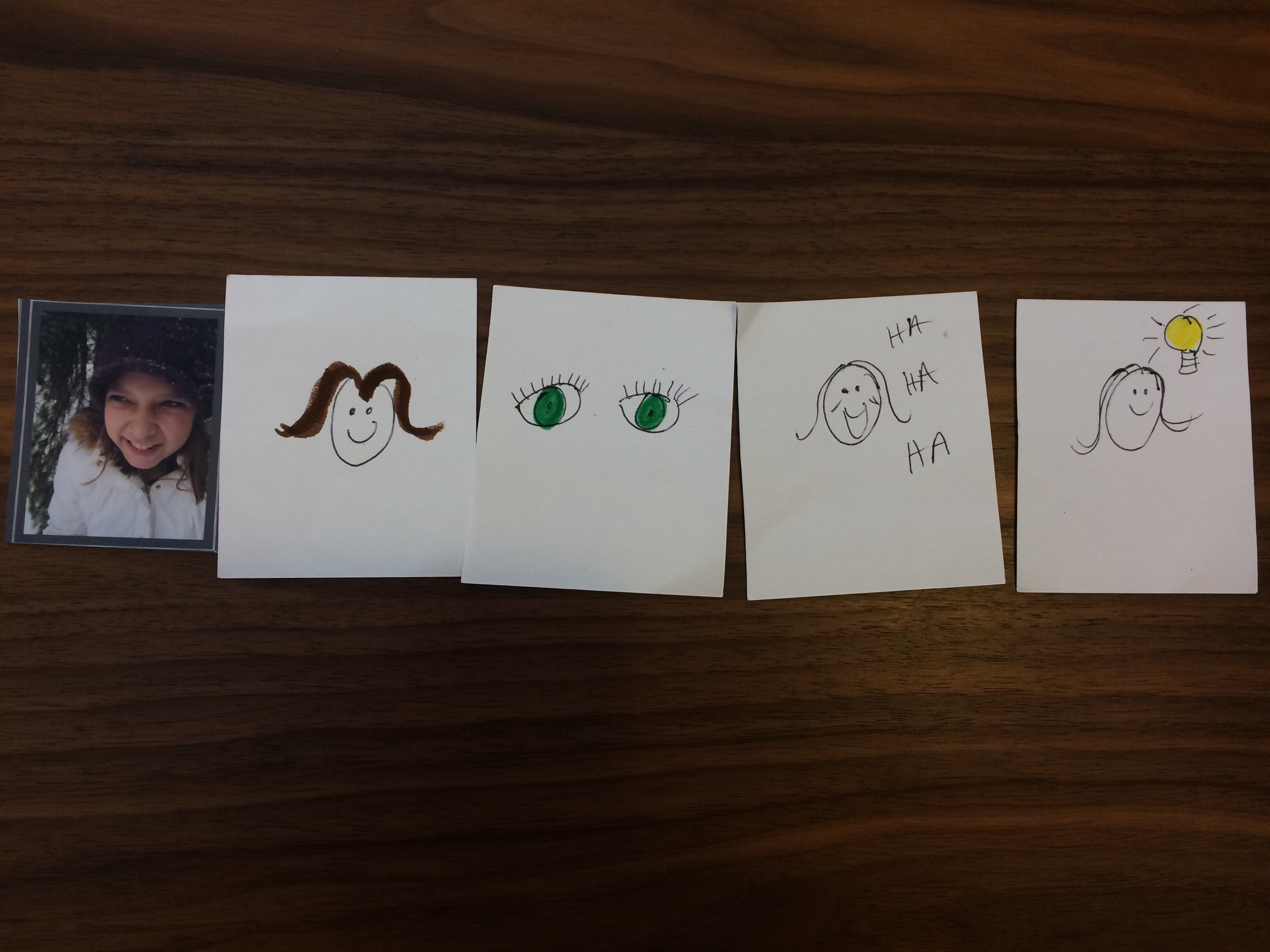When he was little
When he was little he used to throw tantrums all the time. I have the scars on my hands to prove it. When we’d leave a store out of the “wrong door,” I’d try to pick him up off the ground and somehow he’d find a way to dig his nails into my hands and wrists to show his protest. I’d have bruises on my shins. Strands of my hair in his fists. That was life with an autistic little. Any excursion outside of the house was an enormous—catastrophic—disruption for both of us.
I hated that he barely spoke. He would point and grunt even though he had the words to use. I knew he was smarter than he let on. He just had a hard time showing it. I hated that he was so different than all of the other kids his age. When he was three I was so ready for him to be thirteen. I was so ready for him to “grow out of autism.” I was so ready for him to be older, to function better, and to be able to show me what was really going on inside of his brain because doctors assured me that it would get better over time. “Early intervention is key,” they told me. “And you’re doing it. You’ve been on top of it since he was 18 months old. It’s going to get a lot better.”
And it has.
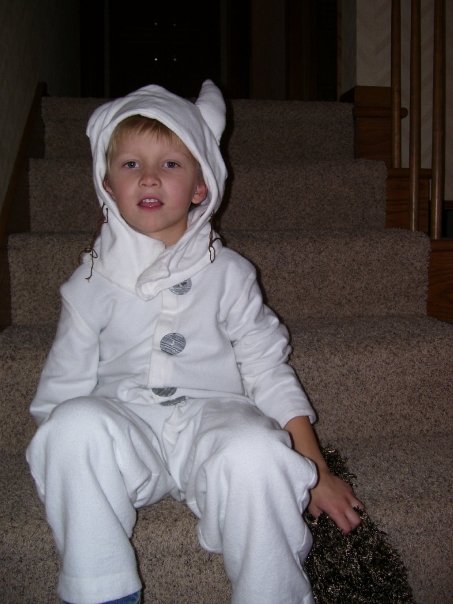
Early intervention—all of the work, all of the years of tens of thousands of one-on-one hours of sitting beside J teaching him his letters, teaching him to read, teaching him his numbers, teaching him his math facts, teaching him how to sit and listen, teaching him how to be polite, teaching him how to tie his shoes, teaching him how to dress himself, teaching him music, teaching him how to run with a cross country team. All of that teaching him how to function in a neurotypical world is paying off. He is in no means a master of any of those skills. He hasn’t grown out of his autism and never will. He relapses into his old habits. But he’s a million times “better.”
Which is why I’m confused about how I’m feeling right now. I’m feeling nostalgic—almost regretful over a picture that popped up on my Facebook timeline last week.
This picture:
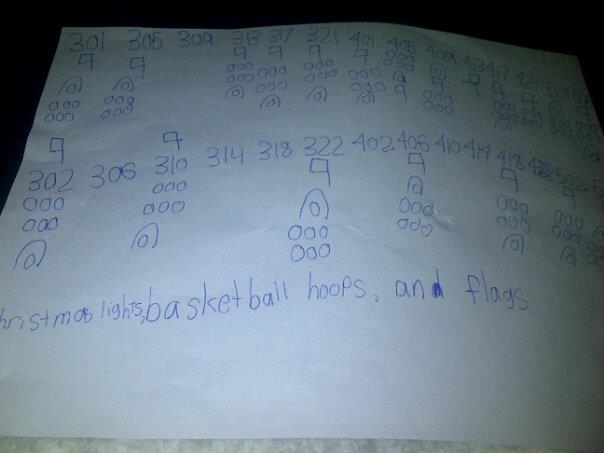
It’s absolutely beautiful. It’s accurate and precise. It’s a map of a neighbourhood he created on his own when he was about six years old. No glimpse of visual processing issues in the handwriting. Everything is lined up perfectly. The circles are perfect. The numbers are perfect. He has a little legend at the bottom, explaining what all of the symbols are. It’s really, really, creative.
Why was it perfect? Why are we struggling with those things now?
I look at the other pictures—other things during that time period—I think of J’s interests in his last few years of elementary school, his Presidents of the United States obsession and how he knew every birth and death date of every single one, his beautiful little singing voice and realize that he’s a lost some of those amazing skills he had when he was little. It sort of breaks my heart.
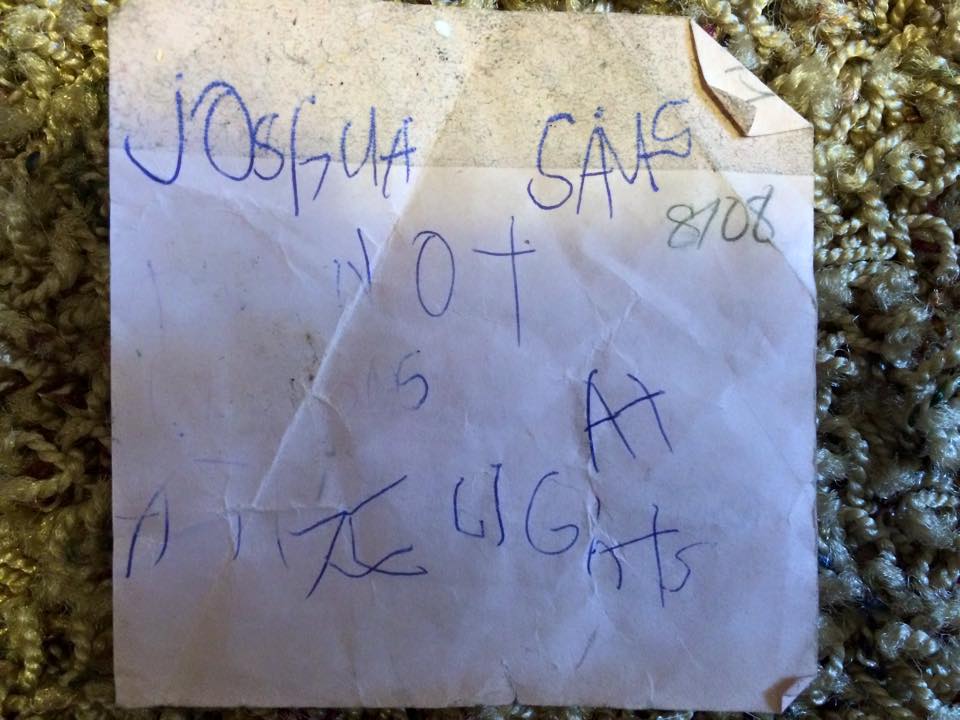
This week I ‘ve been thinking about why he’s lost some of those skills—or why they’re now such a struggle for him. In preschool he had EMMACULATE handwriting. But somehow over the years that disappeared and we’re working (through visual therapy) to regain those skills again. What happened?
Now that he’s no longer obsessed with the Presidents of the United States, he no longer remembers those dates and facts that he used to. That savant-like skill is now gone.
Did we “mainstream” those skills out of him? Since middle school most of J’s classes are deeply, DEEPLY rooted in computers—science labs are done on computer, the textbooks are all online, worksheets are in Google Drive. Did we type those handwriting skills (and visual processing skills) out of him? Did we stop encouraging his interests (like the Presidents) and make him learn other things instead? (that don’t come as naturally and are so much more of a struggle)
Is it just part of growing up? Do our brains change with hormones and suddenly work in different ways than they did before? He has always struggled with proprioception and visual-spatial processing but maybe it’s gotten worse over time. Can it change like a woman’s eyesight can change during or after her pregnancy?
Are there some digressive aspects of autism? Over time is he just bound to lose some skills because that’s how the neurological condition works?
I don’t know the answers and at this point in the journey, I don’t expect to ever get them. But seeing those pictures of when he was little—the things he could do when he was little pull at my heartstrings a little.
Never in a million years did I think I would miss parts of our little autism experience.


